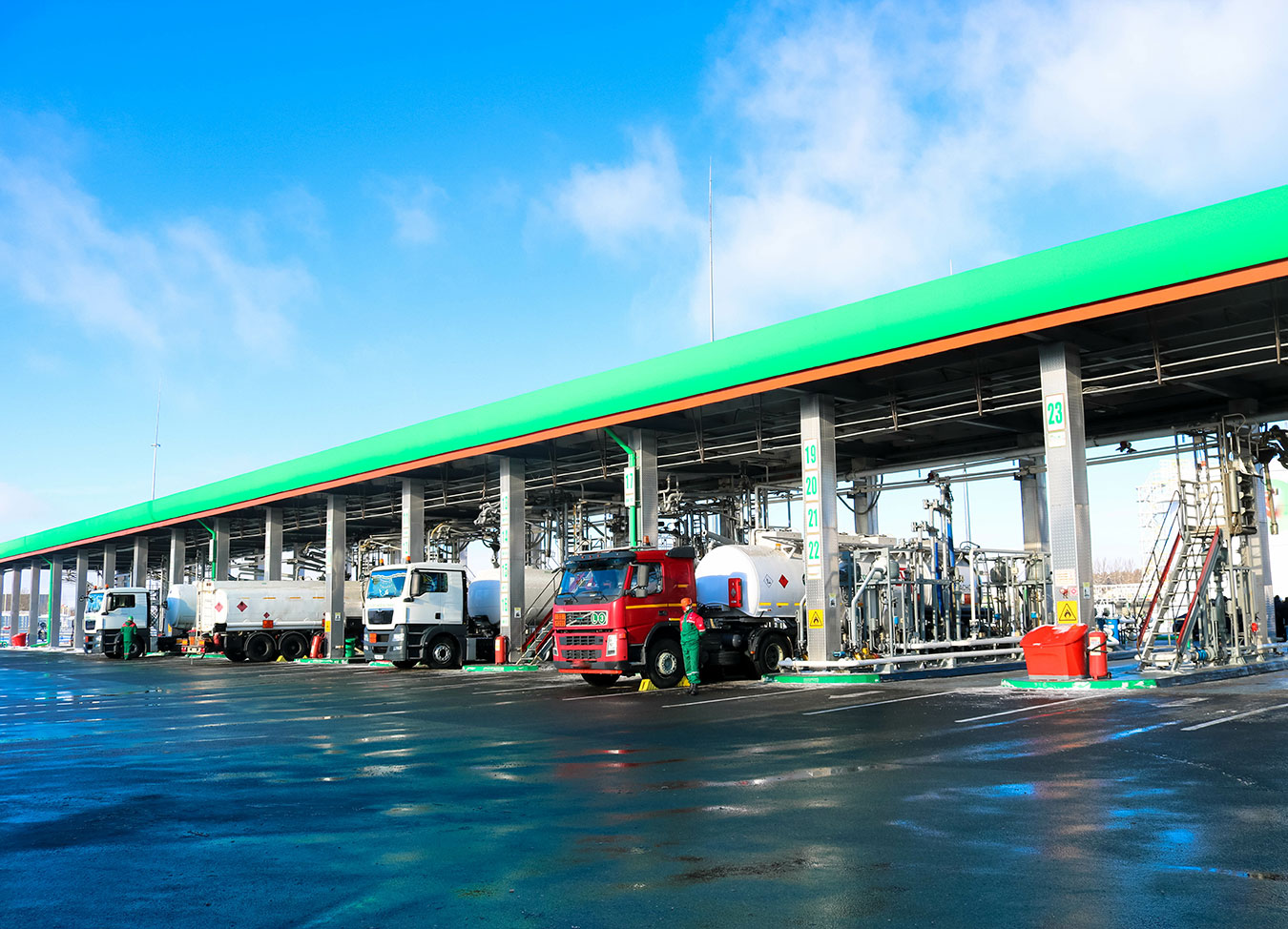
If you’ve been watching the news, you’ve likely noticed how extreme weather conditions gripping Scandinavia and parts of Europe this winter have caused widespread disruptions in both businesses and personal lives. The same challenges have played out in other parts of the world, such as the northeastern United States.
Even though we’re well aware of the difficulties extreme weather can create, we aren’t always prepared to deal with them. Yet these weather disruptions threaten to interfere with the best laid plans for fuel logistics. This includes the transportation of raw materials from refineries to critical storage and loading points, along with the distribution of fuel to petrol stations.
In this blog I explore the potential impacts of logistics disruptions on the fuel supply chain, share best practices for haulers and petrol station operators, and explain why a comprehensive fuel logistics and pricing solution is indispensable in times of uncertainty.
Examples of common disruptions
There are many types of potential fuel logistics disruptions that we simply can’t predict:
- Extreme cold, along with snow and ice storms, can cause road closures even as it increases consumer demand and consumption of heating oil. Deliveries can be cancelled or delayed, creating a backlog that can take weeks to erase.
- Extended droughts and dry seasons can lower the water level of rivers and lakes, making it difficult or impossible for tankers and barges to navigate. Having to reroute vessels or reduce loads further increases transportation costs, puts pressure on retail margins, and impacts product availability at fuel terminals.
- The same issues can occur during flooding, when water levels are too high for vessels to pass beneath the lowest bridges. Flooding also impacts land transportation, including infrastructure damage to bridges.
- Instability caused by geopolitical strife can create both logistical and transportation challenges. The continuing war in Ukraine and recent attacks on ships carrying crude oil through the Red Sea have caused widespread fluctuations in fuel supply—with price spikes driving operators to maintain lower inventory levels.
- Cyberattacks such as the one that shut down the Colonial pipeline can create consumer panic and cause station run-outs as consumers rush to fill their tanks.
What to do: Best practices for haulers and station operators
With haulers facing disruption across transportation networks, petrol stations in affected areas often experience delays—or shortages—in their fuel deliveries. To avoid this predicament, both haulers and petrol station operators must be prepared to adapt swiftly to new developments.
To effectively manage unforeseen events, you need the tools to adapt faster. One of the keys to success is ensuring that you have reliable and agile software solutions that provide greater operational flexibility. Here are four must-have capabilities you need:
- Real-time monitoring: Utilize advanced fuel logistics software to monitor your trucks, shipments, and fuel sales in real time. Stay informed about the location and status of each delivery and changing consumer behavior, allowing for proactive decision-making in response to changing weather and road conditions.
- Route optimization: Leverage the power of route optimization algorithms to plan the most efficient and safe routes. These algorithms should help you navigate around road closures and avoid high-risk areas to ensure timely deliveries.
- Streamlined communications: Establish clear communication channels between haulers, drivers, and petrol station operators. Especially in times of disruption, regular updates on delivery schedules and potential delays are crucial for effective planning and resource allocation.
- Contingency planning: Develop robust contingency plans for unexpected events. Having alternative routes, backup suppliers, emergency response protocols, and the ability to quickly adjust fuel prices can make a significant difference in managing logistics disruptions with minimal impact to your operations.
The vital role of fuel logistics software
With over 40 years of experience in the fuel and convenience industry, PDI understands that comprehensive fuel logistics and pricing solutions are a necessity in good times and times of crisis. State-of-the-art logistics software solutions can help fuel distributors and operators navigate through challenges seamlessly.
With features like real-time tracking, route optimization, and comprehensive analytics, data-driven solutions can provide a single source of truth across your logistics ecosystem to help you:
- Increase visibility over your operations
- Efficiently manage inventory
- Influence product flow and consumer behavior
- Streamline scheduling with logistics scheduling and dispatch solutions
- Simplify workforce automation with in-truck solutions
- Analyze “what if” scenarios to adjust your strategies
Agility to prepare for whatever comes next
By adopting best practices and leveraging advanced fuel logistics software, both haulers and petrol station operators can navigate through even the most challenging disruptions and provide a steady supply of fuel to meet consumer demand.
Contact us today to discover how PDI solutions can help you prepare, stay connected, and thrive with your fuel distribution operations.
Marcel Steigerwald is Director of Product Management, EP, at PDI Technologies. You can connect with him here.
Visit PDI at UNITI expo 2024 to explore the latest fuel logistics and pricing solutions.







